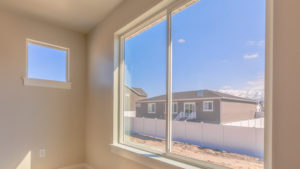
The Financial Benefits of Investing in New Windows
Investing in new windows can be a major home improvement project, but it can also offer significant financial benefits. From reducing energy bills to increasing the value of your home, new windows can be a smart investment for homeowners. In this blog, we’ll take a closer look at the financial benefits of investing in new windows.
Compare PricesReduced Energy Bills
One of the most significant financial benefits of new windows is reduced energy bills. Old, drafty windows can allow a significant amount of heat or air conditioning to escape, which can result in higher energy bills. New windows, on the other hand, are designed to be energy efficient and can help reduce the amount of heat or air conditioning lost through the windows. Over time, these savings on energy bills can add up and offset the cost of the new windows.
Increased Home Value
Another financial benefit of new windows is increased home value. New windows can improve the appearance of your home and make it more attractive to potential buyers. In addition, new windows can also increase the overall energy efficiency of your home, which can be a major selling point for buyers who are looking for an eco-friendly and energy-efficient home.
Lower Maintenance Costs
In addition to reducing energy bills and increasing home value, new windows can also lower maintenance costs. Old windows can require a significant amount of maintenance, such as painting and repair, which can add up over time. New windows, on the other hand, are designed to be durable and require less maintenance, which can save you money in the long run.
Qualifying for Tax Credits
Finally, investing in new windows may also make you eligible for tax credits. In some cases, homeowners who install energy-efficient windows may be eligible for federal or state tax credits, which can help offset the cost of the new windows.

In conclusion, investing in new windows can offer significant financial benefits, from reducing energy bills to increasing home value. By choosing energy-efficient windows, homeowners can also lower maintenance costs and potentially qualify for tax credits. If you’re considering new windows for your home, it’s important to consider the long-term financial benefits in addition to the aesthetic and functional benefits.
Compare PricesFactors that Affect the Cost of New Windows
The cost of new windows can vary greatly depending on several factors. From the type of window to the size of your home, there are many factors that can impact the cost of your new windows. In this section, we’ll take a closer look at the factors that affect the cost of new windows and provide an overview of the different types of windows and their cost.
Window Size and Material:
One of the biggest factors that can impact the cost of new windows is the size and material of the windows. Larger windows will typically be more expensive than smaller windows, and premium materials such as wood or fiberglass can also increase the cost of the windows.
Installation Method:
The installation method can also impact the cost of new windows. Some window types, such as replacement windows, are designed to be installed in the existing frame and can be less expensive than full-frame windows, which require the entire window frame to be replaced.
Number of Windows:
The number of windows you need can also affect the cost of your new windows. The more windows you need, the higher the cost will be.
Window Type:
There are several types of windows to choose from, each with its own cost. Here’s a brief overview of the most common types of windows and their cost:
- Vinyl Windows: These are popular and affordable options, with an average cost of $250 to $750 per window.
- Wood Windows: These are a premium option and can be more expensive, with an average cost of $450 to $1,500 per window.
- Fiberglass Windows: These are a more durable option, with an average cost of $450 to $1,000 per window.
- Aluminum Windows: These are a cost-effective option, with an average cost of $350 to $800 per window.
- Casement Windows: These are hinged on one side and can be more expensive than other types of windows, with an average cost of $450 to $1,500 per window.

The cost of new windows can vary greatly depending on several factors, including window size and material, installation method, number of windows, and type of window. Homeowners should consider their budget and needs when choosing new windows and should get quotes from multiple contractors to ensure they are getting the best deal. By taking the time to research and compare options, homeowners can ensure that they are making a smart investment in their homes.
Compare PricesWill Investing in Replacement Windows Save You Money?
Investing in new windows can seem like a costly expense, but the truth is that replacement windows can actually save you money in the long run. New windows can improve the energy efficiency of your home, reduce your energy bills, and even increase the value of your home. In this blog, we’ll explore how investing in replacement windows can save you money and highlight some studies that show the energy savings of new windows.
Reduced Energy Bills:
As mentioned above, one of the biggest benefits of new windows is that they can reduce your energy bills. Old, drafty windows can let a lot of heat escape in the winter and let in a lot of hot air in the summer. This can put a strain on your heating and cooling systems and cause your energy bills to rise. New windows, on the other hand, are designed to be energy efficient, with features such as double-paned glass and low-E coatings that help keep your home comfortable and reduce your energy bills and save you money in the long run.
Improved Home Comfort:
In addition to reducing your energy bills, new windows can also improve the comfort of your home. New windows can reduce drafts and prevent hot and cold spots, so your home stays more comfortable throughout the year. This can also reduce the wear and tear on your heating and cooling systems, which can save you money on repairs and maintenance.

Increased ROI:
New windows can give your home a fresh, updated look and can improve its energy efficiency, making it more attractive to potential buyers. According to the National Association of Realtors, replacing windows can provide a return on investment of up to 75% of the cost of the windows.
Studies Showing Energy Savings:
There have been several studies that show the energy savings of new windows. One study by the Lawrence Berkeley National Laboratory found that new windows can reduce energy bills by up to 15%. Another study by the Energy Information Administration found that new windows can reduce energy bills by up to 12%. These studies show that investing in new windows can provide significant energy savings for homeowners.
In conclusion, investing in new windows can save you money by reducing your energy bills, improving the comfort of your home, and increasing the value of your home. With the potential for energy savings of up to 15% and a return on investment of up to 75%, new windows can be a smart investment for homeowners. If you’re considering replacement windows, be sure to get quotes from multiple contractors and choose a high-quality, energy-efficient window that will provide you with the best value for your investment.
Compare Prices

Leave a Reply